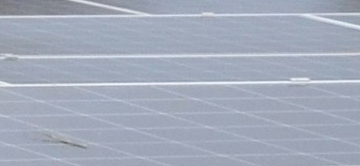On July 6, 2022, the European Parliament endorsed the inclusion of gas (and nuclear) power in the list of environmentally sustainable activities, the green taxonomy. Why is this environmental endorsement happening at a time when all European governments are seeking to break free from the grip of natural gas?
Taxonomy and the market
Since the beginning of 2022, the price of natural gas has reached stratospheric heights. On the TTF Amsterdam platform, fossil gas is currently trading at 10 times its September 2021 price. The market is therefore sending us a signal of scarcity that should encourage consumers to turn away from this energy and, on the other hand, convince investors that it is profitable to enter and develop this industry. In fact, the market is playing its role as an alarm bell and informs us about the expenses of some and the profits of others. Even if we sometimes observe long-term transactions covering 5 or 10 years, the energy markets are mostly talked about in the short term, or even the very short term. Indeed, since agents cannot instantly adapt their facilities, their sources of supply or their uses in response to natural or political shocks, the balance between supply and demand is resolved by spectacular price increases or decreases, before reverting to a more normal situation if the shocks are transitory.
In a context where regulation evolves according to the political debate, it is not unusual to observe a form of inconsistency between overheated markets and regulatory decisions taken over time, especially in Brussels. Indeed, the story of green taxonomy began on March 8, 2018, when the European Commission presented its ''Action Plan for Financing Sustainable Growth.'' It was not until March 2022 that the Commission reached a final text including gas and nuclear in the taxonomy, and submitted it to the European Parliament, which could only accept or reject it within 4 months, without amending it. To be more precise, on July 6, the European deputies did not vote in favor of the Commission's text; they voted against the resolution that called for its rejection, at the end of a procedure that had begun well before the gas crisis.
Strategic weapon
If fossil gas is included in the green taxonomy, it is on a transitional basis because it is expected to facilitate the decarbonization of the economy. The adjective transitional announces a future ban, but no date is set. Even in the utopian scenario of "net zero emissions in 2050", gas activities that emit CO2 remain because these emissions are supposed to be absorbed by natural and industrial carbon sinks. Gas is therefore temporarily welcome, particularly as a replacement for coal, which is a much greater emitter of greenhouse gases. Much is expected of it to compensate for the intermittency of wind and solar energy, in synergy with storage and a demand that should be more responsive to signals of scarcity.
But the war in Ukraine has disturbed the virtuous image that the taxonomy wanted to give to fossil gas. Here it is promoted to the rank of strategic weapon, causing an unprecedented spike in the price of electricity, and contributing to the return of an evil that was thought to be under control, inflation. In a matter of weeks, gas has become a public enemy and energy companies are being asked to pay back "windfall" profits.
The current surge in gas prices is a temporary event and its evolution will depend on the fighting in Ukraine. It should end when and if peace is achieved. On the other hand, global warming is a structural problem. It will not disappear when the price of gas returns to pre-war levels. Governments are considering structural reforms for energy markets in response to the current economic crisis, which can be seen as a first warning of what our future will look like. But the two should not be confused: while short-term remedies are urgently needed to help the economy withstand the crisis, especially for the poorest populations, urgency should not dictate decisions about industry restructuring and market reform.
Reforms
The common feature of the reform projects that are beginning to be talked about in Europe is a containment of the electricity industry to protect it from market contamination. In France, for example, the plan to renationalize EDF aims to withdraw the 15% of the capital held by institutional and individual shareholders from private hands.
At the European level, the scapegoat for the current crisis is the wholesale electricity market, which is being attacked from all sides, notably by the President of the European Commission. For politicians, the priority is to silence this market, as if capping the thermometer could cure a patient. The buzzword is 'decoupling'. In principle, this means preventing the price of gas from impacting the bill paid by electricity consumers. But the modalities remain to be defined according to the interventionist inclinations of the authorities. Some think of compensating consumers financially by taking from the profits of producers who make high profits thanks to their low operating costs. For others, it is necessary to put an end to marginal cost pricing and to set energy prices that reflect the average cost of production units, in other words, to put an end to the principle of operation of the current market. There are also plans to split the market into two markets, one reserved for low-cost technologies (nuclear and renewables[1]), the other for fossil fuel technologies (coal and gas). The consequences of these various structural measures have yet to be assessed, particularly their impact on producers' investment plans and on the incentive to consume induced by a price freeze.
*
* *
Fossil gas does not deserve to be celebrated or condemned. As long as consumers are unwilling or unable to adapt their kilowatt-hour withdrawals to variations in wind and sunshine, and as long as electricity storage has not reached significant capacity, gas will remain an indispensable energy source for industrial economies, particularly the electricity industry. And if public authorities want to reform the electricity markets, they should focus on the dysfunctions of the retail market rather than seek to reform a wholesale market that is fulfilling its missions correctly, as emphasized by energy regulators.





